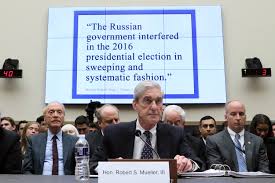The disruption by foreign adversaries and extreme right-wing groups, of the United States Census and the 2020 U.S. election, has already begun. While partisan groups are continuing to claim “Say it ain’t so Joe,”* reality shows that disruption is well underway. There is a role for the public to be informed consumers of news. But increasingly, local and community journalists are on the front lines of fact and fiction, protecting democracy and the rule of law.
“We are a nation whose deep divides have been used against us by a foreign nation-state,” said former U.S. Ambassador to Russia Michael McFaul on Thursday. “We cannot become complicit in legitimizing Russian propaganda.”
That sobering reality was one of several relayed earlier this week to around 40 journalists from across the country, including representatives of six Colorado newsrooms. We were invited to the University of Denver to participate in high-intensity training conducted by an international nonprofit known as First Draft News. The session was the first of 15 newsroom training sessions scheduled across the nation in the first quarter of 2020. It’s purpose: to train newsrooms to combat online newsroom threats, coming in multiple waves in conjunction with the elections and the census and nearly every other social issue.
Ark Valley Voice was selected as a participating Colorado Newsroom** for the training this past Sunday and Monday, sponsored by First Draft News cooperatively with the Colorado Media Project, with funding from the Gates Family Foundation.
The training includes real-world simulations for journalists and editors. Simulations that highlighted the threat of escalating rumors or coordinated online attacks, with a particular focus on elections.
First Draft is a global nonprofit that supports journalists, academics and technologists working to address challenges relating to trust and truth in the digital age.
The organization hosts a global verification and collaborative investigation network through its CrossCheck International initiative, providing practical and ethical guidance in how to find, verify and publish content sourced from the social web.
It has tackled what it refers to as “information disorder” in pioneering work around elections in the U.S., France, UK, Germany, Brazil and Nigeria.
The training was broken into a series of four masterclasses, beginning with the basic example of attacks on the credibility of the U.S. Census currently underway.
Social media attacks tend to begin in one of three categories.
The first is misinformation.
“It’s false, but the people who share it often don’t realize its false,” said First Draft News Co-founder and Director Claire Wardle, Ph.D., explaining that some rumors begin quite innocently. “Then, there is disinformation. This is the intentional creation and sharing of false information.” She explained that this is intended to cause general chaos and confusion, accentuating social divides and undermining public trust.
An example of disinformation regarding the census is a false rumor that has been spread that only citizens take the census. Not true: every U.S. resident needs to be counted). Another piece of disinformation is that private information will be shared with ICE (U.S. Immigration and Customs Enforcement), leading to deportment (also not true).
The U.S. Census assembles a critical body of information, informing the distribution of congressional representation, federal budgets and federal aid to states for schools, hospitals, roads and public works projects. Businesses use the information to determine where to place factories, and granting organizations can use it to determine grant awards in line with population shifts and emergency personnel rely upon accurate counts of how many people need to be evacuated or aided in natural disasters.
Then there is mal-information.
“This is information created and disseminated that is genuinely intended to be shared to cause harm,” added Wardle. She went on to list the many ways that these three types of information can come at the general public, rapidly escalating to where news media is pulled in. Unless prepared to verify social media posts, regular news media, like the general public, can mistake fiction for truth.
“There is fabricated content, imposter content and false content – and the biggest bucket is genuine content used out of context,” said Wardle. “There is manipulated content, where portions of the information have purposely been changed. We’re seeing [malicious] manipulation of news media articles. Then there is what we call “misleading content” – the use of information to frame an issue or individual by making false connections … where we see headlines, visuals or captions that don’t support the content.”
One piece of fiction representing fabricated mal-information has made the rounds of social media, even reaching into the halls of the U.S. Congress: the debunked theory that Ukraine was somehow involved in influencing the 2016 U.S. election. Not only is this not true, but it plays directly into the hands of Russian President Vladimir Putin.
The perpetuation of this myth is causing real harm to bipartisan support of Ukraine that has been in a hot war with Russia since that country invaded it in 2014. It has already lost 14,000 of its citizens to Russian aggression.
“The idea that Ukraine executed a campaign to interfere in the 2016 U.S. elections is a purely fictional narrative,” said U.S. Russian Policy Expert Fiona Hill during her spoken testimony on Capitol Hill Thursday morning. But the Russians did.
First Draft News operates as an independent entity with headquarters in London and a New York bureau housed at the Craig Newmark Graduate School of Journalism at CUNY. It has been invited to join the Shorenstein Center for Media, Politics and Public Policy at Harvard’s Kennedy School.
First Draft News is expanding its digital community partnerships to conduct innovative and experimental research projects, exploring the spread and threat of information disorder on closed messaging apps. The training at the University of Denver is part of the continuous development of online and offline training designed to expand and embed best practices in newsrooms and journalism schools around the world.
Editor’s Notes:
*”Say it ain’t so, Joe.” – a phrase attributed to Chicago Daily News reporter Charley Owens about baseball player Shoeless Joe Jackson’s admission that he cheated in the 1919 World Series.
** Colorado Newsrooms participating in First Draft News training included: Ark Valley Voice, NBC Affiliate 9News, Colorado Public Television, Summit County Daily, The Colorado Sun and H2O Radio.










Recent Comments